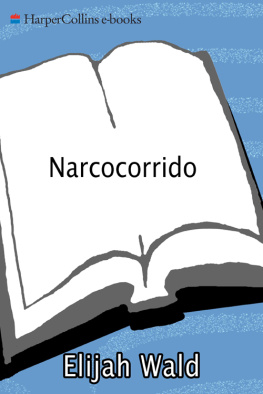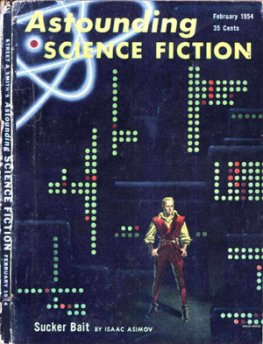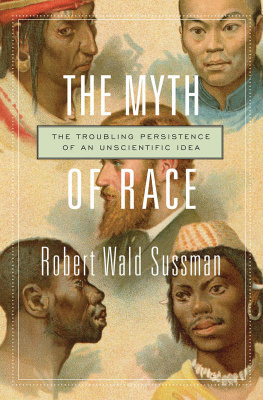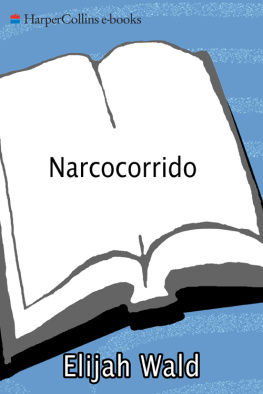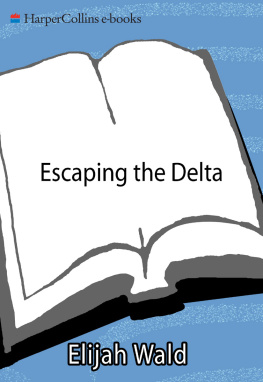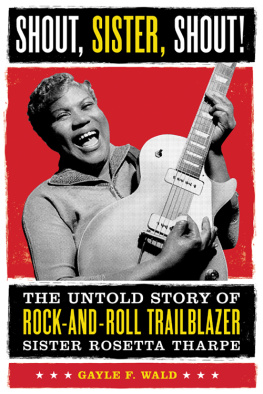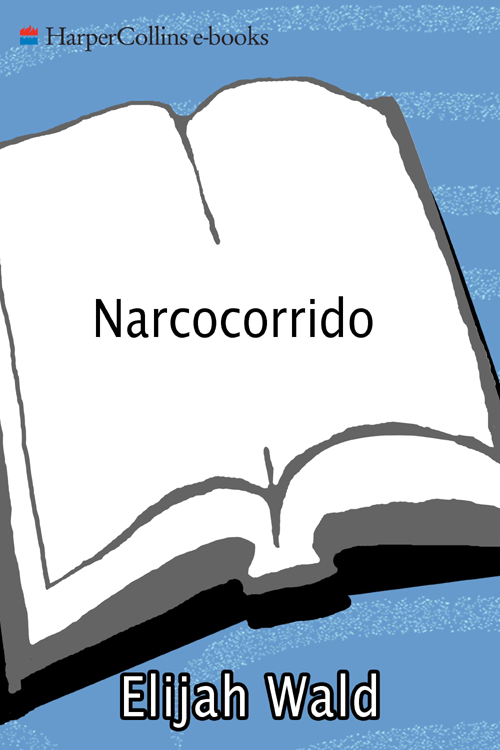NARCOCORRIDO
A JOURNEY INTO THE MUSIC OF
DRUGS, GUNS, AND GUERRILLAS
Elijah Wald

Elijah Walds Narcocorrido is more than an expos of a musical genre and a contemporary problem, it is a journey into the complex nuances of Mexican social and cultural history. His book is a most significant contribution to the bibliography on travel literature by foreign observers to Mexico since colonial times. It will be of interest to a wide range of specialists in diverse fields, as well as to the casual reader who will enjoy the pleasure of a rich narrative of adventure and detective work.
Guillermo E. Hernndez, Ph.D.,
DIRECTOR OF THE UCLA CHICANO STUDIES RESEARCH CENTER
Through the stories of the corrido-crafters themselves, Wald uncovers a world desperate for heroes. At once tragic and hopeful, the results of his journey hold a mirror up to life on both sides of the border.
Louie Perez of LOS LOBOS
Half enthusiast and half ethnomusicologist, Wald offers an engaging, fascinating, and well-written account of a much-neglected musical style that will be irresistible to readers of all types.
Library Journal
It is a huge business, drugs, drug-fueled revolution, and singing about them, and Wald does a superb job of taking his readers into that world.
Kirkus Reviews
Walds book is most useful in providing a forgotten perspective on the War on Drugsthat of ordinary Mexicans who have to grow or smuggle drugs to get ahead or even survive, and [who] see Washingtons bellicose rhetoric as a bunch of hypocrisy.
High Times
Larger-than-life legends and tragic heroes aplenty, such as Chalino Snchez, whose rise is a Mexican version of the Tupac Shakur story. A worthy shelf mate for Michael Eric Dysons brainy Shakur study, Holler If You Hear Me.
Booklist
Wald is an engaging writer, and Narcocorrido [is] a must-have for those wanting an introduction to the genre.
Austin Chronicle
A skillful and entertaining examination of a music genre, its history and the key people who made it happen.
New Times ( LOS ANGELES )
The evolution of Mexicos narcocultura and its music, the narcocorrido, is brilliantly captured in Elijah Walds Narcocorrido.
Orange County Weekly
In his addictive history of the musical phenomenon, Elijah Wald braves the not-inconsequential danger of venturing to the musics home turf.
Maxim Blender
Insightful. An enlightening rendezvous. Wald patiently explores the half-accomplished modernity that colors northern Mexico. [His] detours are a midrash to understand the overall context that nurtures this kind of transnational phenomenon.
Ilan Stavans, The Nation
A unique book about a unique subject. Fascinating reading.
Fort Worth Star-Telegram
One has to admire Wald for his courage and his curiosity. Not only is he a fearless explorer, hes a masterful explainer. These talents converge effectively in this loving interpretative overview of a popular and populist musical genre far more representative of contemporary Hispanic culture than the trendy dilutions that pass for the real thing on U.S. radio and television.
Boston Globe
A fast-paced blend of music, history, personal travel memoir, and reportage.
Los Angeles Times
An incisive, unprecedented, and often enthralling history of a hugely popular musical style.
San Jose Mercury News
A well-written, comprehensive, colorful account. Not since Michael Tisserands The Kingdom of Zydeco have I read a book that gets into a musical genre and its supporting culture so thoroughly and entertainingly. Solid research, superb interviews, and compelling narrative with a nonjudgmental cultural sensitivity are all essential to carrying off a book like Narcocorrido, and those of us north of the Rio Bravo should be glad Elijah Wald has opened the door to this bizarre and fascinating world for us.
Wall Street Journal
ELIJAH WALD is a writer and musician with twenty years experience covering roots and world music. He was writer and consultant on the Smithsonian multimedia project The Mississippi: River of Song and is the author of the award-winning biography Josh White: Society Blues. An overview of his work is available at www.elijahwald.com.
Visit www.AuthorTracker.com for exclusive information on your favorite HarperCollins author.
Dedicated to all the corridistas
who should have been covered in this book,
but are not. Especially to Rafael Buendia,
Reynaldo Martnez, Beto Quintanilla,
Enrique Valencia, and Juan Villareal.
I began this project in a state of almost total ignorance. I had spent only a few months in Mexico, enough to fall in love with the country but not enough to even begin to understand it. I had no real grounding in Mexican history or culture, and only the vaguest acquaintance with the history or current state of the Mexican corrido. To make things still more difficult, I spoke competent but by no means perfect Spanish. Thus, I was dependent from beginning to end on the help of others, and if this book is worthy of its position as the first survey of the contemporary corrido scene it is due to their generosity. If not, it is my own fault; I could not have asked for more thorough and enthusiastic cooperation.
Obviously, the first people I must thank are the corridistas themselves, who not only talked to me at length about their lives and work, but in many cases invited me into their homes and treated me as a friend, giving me an invaluable insight into their world. I hope they are happy with the way I have described it and them.
There are also all the music fans I met along the way without whose help this book would be much poorer: the truck drivers and bus drivers who played me cassettes of their favorite corridos, the record store owners who guided me to appropriate selections and answered so many questions, and the many passing acquaintances in bars and cafs. They are the real experts in this field and, while I do not know most of their names, I could not have written this book without them.
Various people were involved in the gradual growth of this project. I must especially thank Chris Strachwitz, whose releases on Arhoolie Records first introduced me to norteo music and who was a constant source of encouragement and information. Without his enthusiastic urging, I would never have started down this path. The people of Ybarra, Chiapas showed me that the corrido was still alive as something more than entertainment. Suzannah Maclay brought me the cassette of Jefe de Jefes, which sparked the article that sparked this book, and Scott Powers at the Boston Globe let me write that article although it had no local hook.
While most of this book is based on my conversations with musicians and composers, I also did my best to take advantage of previous investigations into the corrido, and am infinitely grateful to the many researchers who were willing to answer my queries and treated me, despite my lack of qualifications, as a fellow worker rather than an upstart interloper. I must especially thank Guillermo Hernndez, Antonio Avitia, Jaime Nicolopulos, Alvaro Ochoa, Guillermo Berrones, Luz Mara Robles, Francisco Ramos, Luis Astorga, Helena Simonett, and Sam Quiones, all of whom gave time and energy above and beyond the call of duty.

